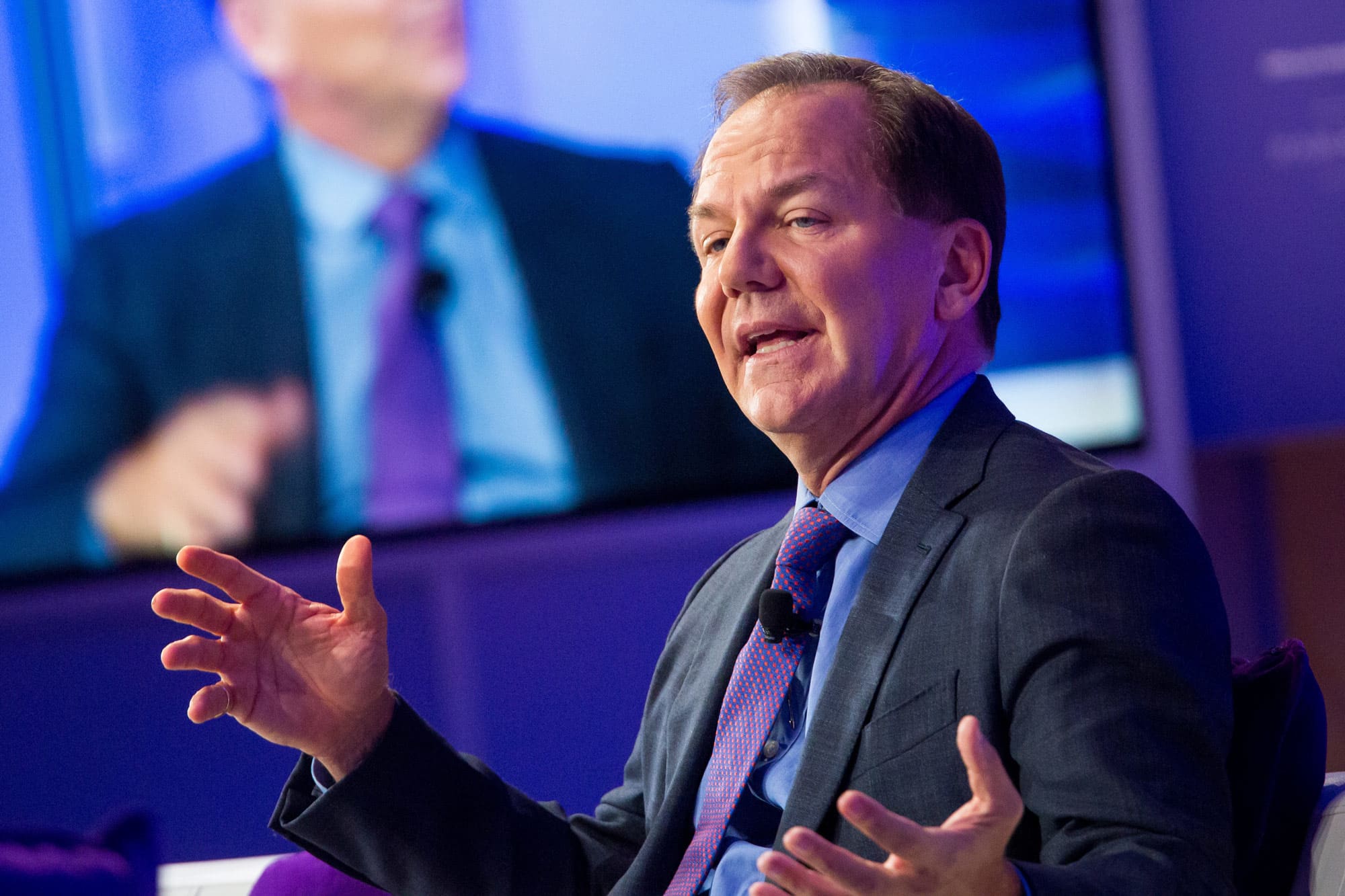
As companies, consumers and investors put more emphasis on business actions beyond the balance sheet with a focus on environmental, social and governance, hedge fund legend Paul Tudor Jones says the tenets of Milton Friedman’s classic philosophy of shareholder capitalism are long gone.
“The problem with what Milton Friedman said, that the only business purpose for a company is to generate a profit, is that if that’s your only motive, it creates the ability to be amoral in your decisions,” Jones said on CNBC’s “Squawk Box” on Tuesday morning.
Jones, who co-founded the ESG investing research firm Just Capital that annually ranks the top companies in the U.S. stock market on ESG metrics, pointed to the actions of Purdue Pharma, saying that “their only business purpose was to make a profit and then the consequence of that was an opioid crisis that killed 400,000 Americans.”
“You cannot distinguish between a business purpose without bringing in ethics and morality and the social consequences of your actions,” Jones said. “You can’t even say that making a profit is economically the greatest way to create a production system because again, we lost 400,000 workers in that opioid crisis.”
Focus on taking care of workers
The companies that are doing well, Jones said, are those that are focusing on the “most important metrics, which are generally pocketbook issues and work-related.”
The 2022 JUST 100 ranking of large-cap U.S. stocks weighted worker issues the most heavily in the scoring, based on polling Just Capital conducts among Americans each year to assess the most important issues to the public
2022 JUST 100 ranking: The full list of the market’s ESG leaders
The top component in this year’s JUST 100 was paying a fair and living wage, resulting in “workforces that are taken care of by far and away on a variety of fronts relative to the rest of corporate America,” Jones said.
But the most important thing these companies are doing, he added, is “being just and being in line with Americans’ views on what is just is great business.”
The hedge fund icon says the data is already proving this view is the better one for long-term investors. Companies on the JUST 100 list give 19 times more to local communities and provide pay gap disclosure more often, but they notably also pay 20% more in dividends and earn 4.5% more than the rest of corporate America.
“There’s economic and financial things that they do better on and they’re also social issues that set them apart in a way that makes them the most valued companies in America,” Jones said. “You can’t have a value proposition for investors and shareholders in the long run unless you’re taking care of and providing a value proposition for the other stakeholders, employees, customers, communities, the planet.”
As far as the current market conditions and volatility induced by a shift in Federal Reserve policy, Jones told CNBC that recently hot stocks will continue to “face tough sledding,” and he described the Fed Chair Jerome Powell as having “a lot of catching up to do” to combat inflation, which will have consequences across asset prices.
Just Capital weighted worker issues at 39% this year, which includes factors such as offering a living wage, protecting the health, safety, and well-being of workers beyond what is required by law, offering high-quality benefits, and investing in its workforce through training and education.
“We’ve seen wage growth go up,” Jones said. “The No. 1 issue for Americans with regard to companies is pay a fair and living wage and last year you saw an explosion in wage growth, which is a good thing, particularly since profit margins over that same timeframe went from 6% to 12%.”
“Letting workers share more corporate revenue is a good thing and it’s good for business also,” he said.




